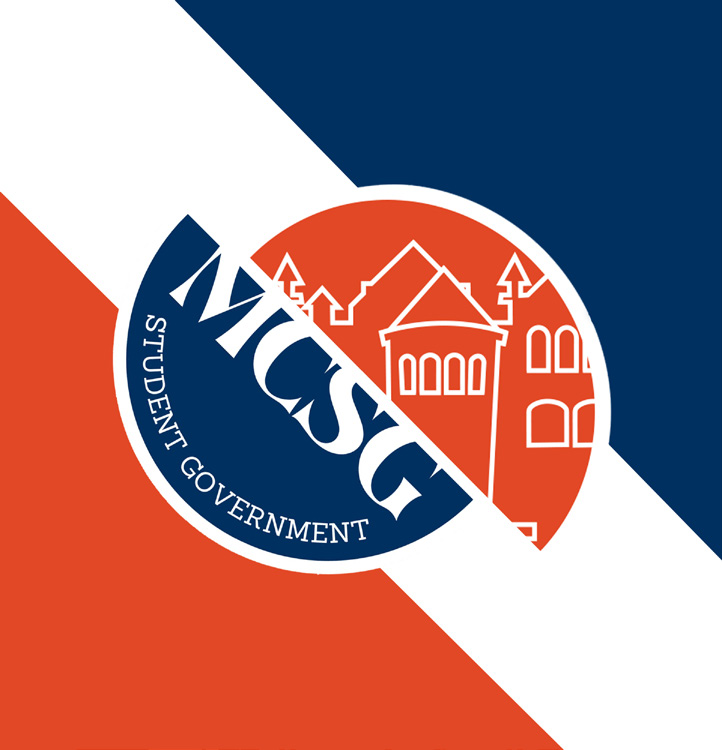The future of student governance: student coalition-building
April 7, 2022
The accessibility of activism at Macalester has proved to be a double-edged sword for the goal of institutional change. Our standards of accountability have been lowered by Instagram stories and posts that have hindered people’s ability to critically engage with structural change. Confrontations of titanic structures of oppression which have long existed as the heartbeat of Macalester are undergoing agitation with the increased unison of Macalester College Student Government (MCSG) and the wider student body.
This article will be the first of three articles that will analyze the way the student body, MCSG and the administration have come to understand and maneuver through student governance. We are at the precipice of institutional change with the recent engagement with MCSG, an increase in student protests and the appointment of new senior leadership staff members. It is crucial that we recognize the opportunity for change that stands before us, and work towards ensuring that we are thoroughly tackling it.
Remnants of a 17-year-old administration reign over a stud body whose majority was not here to witness it. Institutional neglect has left students to sit with years of racial abuse, misogynistic academics, ableist invalidation from higher ups and active dismissal of trauma, pain and suffering. Without the proper tools to combat these issues, we are left unable to critically analyze these systems of oppression. The role of MCSG as a funnel for students’ concerns has been misused by both the student body and members within MCSG for a long time. This article will specifically look at the relationship between the student body and MCSG, engaging in all sides of accountability.
The validation of performative activism immobilizes one from properly investing in structural change. Online activism, unless it is used to organize within communities that cannot exist outside the scope of the internet, conditions instant gratification. Certainly advocacy is better than silence, however, we have lowered the bar and allowed people to masquerade as activists. When confronted with the work that is expected of them outside of posting, performative activists underdeliver. Macalester’s activism, known for its “radicalism” compared to other midwestern and national Predominantly White Institutions (PWI), harbors a mismatch between the call for the abolition of institutions of oppression and the work people are willing to put in. I must clarify that when I am referring to the greater student body, I am specifically looking to students of social, economic, and political privilege; it is a PREDOMINANTLY WHITE INSTITUTION after all.
Those that have gone through this college gliding above issues of race, class, gender and disability, are those that are the first to call to dissolve institutions like MCSG. Students of color and other students of marginalized identities already carry the weight of this institution, and are also present in conversations of unlearning and healing. In the midst of student pushback against institutional neglect (through requests of better mental health facilities provided by the Hamre Center, increased wellness days, firing of a tenured professor), students respond to the administration’s lack of decision as the fault of MCSG. MCSG serves as the most powerful organization of the student body. I’m not excusing the problems within MCSG (those will be discussed in the next issue) or their unresponsiveness to certain issues that have prompted the distrust that exists within the student body. Rather, I want to examine the absence of investment from students into MCSG as a tool to further the change we so yearn for.
There is a need to dismantle existing institutions like MCSG by students of privilege for the sake of advocating for abolition. How could one advocate for the dissolving of MCSG if they are not ready to put in the work needed to reshape the organization? A critique of MCSG is necessary for the cultivation of accountability culture, but students must ensure that they follow it with solutions and steps for progression. We must not consistently resort to putting our bodies, time and academics on the line for the administration to listen to us, when we can reorient our relationship with MCSG to create a similar impact.
People must be ready to work towards the change they want to see, otherwise they begin to bark orders at members of MCSG that are head on with the administration. With committees like the Student Services and Relations Committee (SSRC) and the Executive board, with members that identify as Black, Jewish, Queer, disabled and as international students; issues discussed above are the lived experiences of these students. Yet even so, there are occurrences where members of the student body (that do not identify with the identities of those stated above) accuse the SSRC and Executive board of not tackling those identity issues, even though the people they are attacking represent those identities. “What have they done anyway?” is a common phrase used by many members of this college, a baseless accusation that does not stem from research or conversation, but from blind expectation.
Under President Rosenberg, MCSG was the water around the moated castle Weyerhauser, protecting it from the student body on the other side. The accessibility that we now have with administrators and senior staff wasn’t available under Rosenberg. However, the lack of proper MCSG presence amongst the student body remains. This is partly because MCSG members have to actively work towards shifting that narrative, but also because students have to inquire and ensure they are a part of the governance that represents them. “The only person in MCSG that had connections to BriRo (Brian Rosenburg) was the President, nobody could just go meet with the President [Rosenberg], or at least that wasn’t the culture at that time,” mentions Community Engagement Officer Ayana Smith-Kooiman ‘22.
However, within President Rivera’s administration, students’ proximity to senior leadership has increased. Student discourse on the trajectory of the institution and the way it will carry on or cut off the weight from the past has also increased. If students are able to take their time and invest in MCSG as a funnel for those concerns, it would allow students to take part in the molding of this college under a different administration. Although MCSG is not the only way that structural change is guaranteed, it is on an institutional level. We must be able to use the tools provided to us to create new doors of opportunity and change.
Oftentimes lower organizations within hierarchical systems of governance may be susceptible to institutional mimicry. One might perceive MCSG as a student replica of the administration. However, our investment into unifying with MSCG grants us the ability to step out of that mold, and create an organization that is better representative of the changes that are needed.
“Now we are more visible that we were two years ago, but the perception hasn’t changed …When you’re thinking about who’s engaging with MCSG, it’s not the majority of the student body, cause we just got our election results and 720 students voted, that’s less than half of the student body so we’re dealing with a condensed population,” Smith-Kooiman said.
What has our engagement with MCSG looked like? When you criticize and diminish MCSG, is it followed with your attendance at the public Legislative Body (LB) meetings? When the people within MCSG are criticized, it is not followed by holding MSCG members and representatives accountable for their actions and promises. When election periods occur, are you voting? Do you engage with your representatives? Do you follow the MSCG instagram? Do you read the MCSG newsletter with constant updates from committee and LB meetings? Do you know what the different committees do?
The centralization of a single representation of privileged or White identity has silenced those that have constantly been at the receiving end of the institution’s wrath for far too long. But even when that representation bleeds into MSCG, it is the unaffected who are criticizing those doing the work. The presence of MCSG has to be watered by us, the student body, otherwise our voices will wilt, and so will our ability to engage with the administration in a meaningful way. Our increased engagement with MCSG guarantees representation.
The lens with which we criticize MCSG must not be tainted with our need for instant response from those we call out. It can’t be from empty “anarchy.” The deep pain in students’ stories has immense power. The void that has been created by perpetual institutional neglect must not discourage our relationship with student governance. As the ballots opened up Thursday morning of the 6th, and will be opened through Sunday of the 10th, remember your responsibility to mold this institution.














